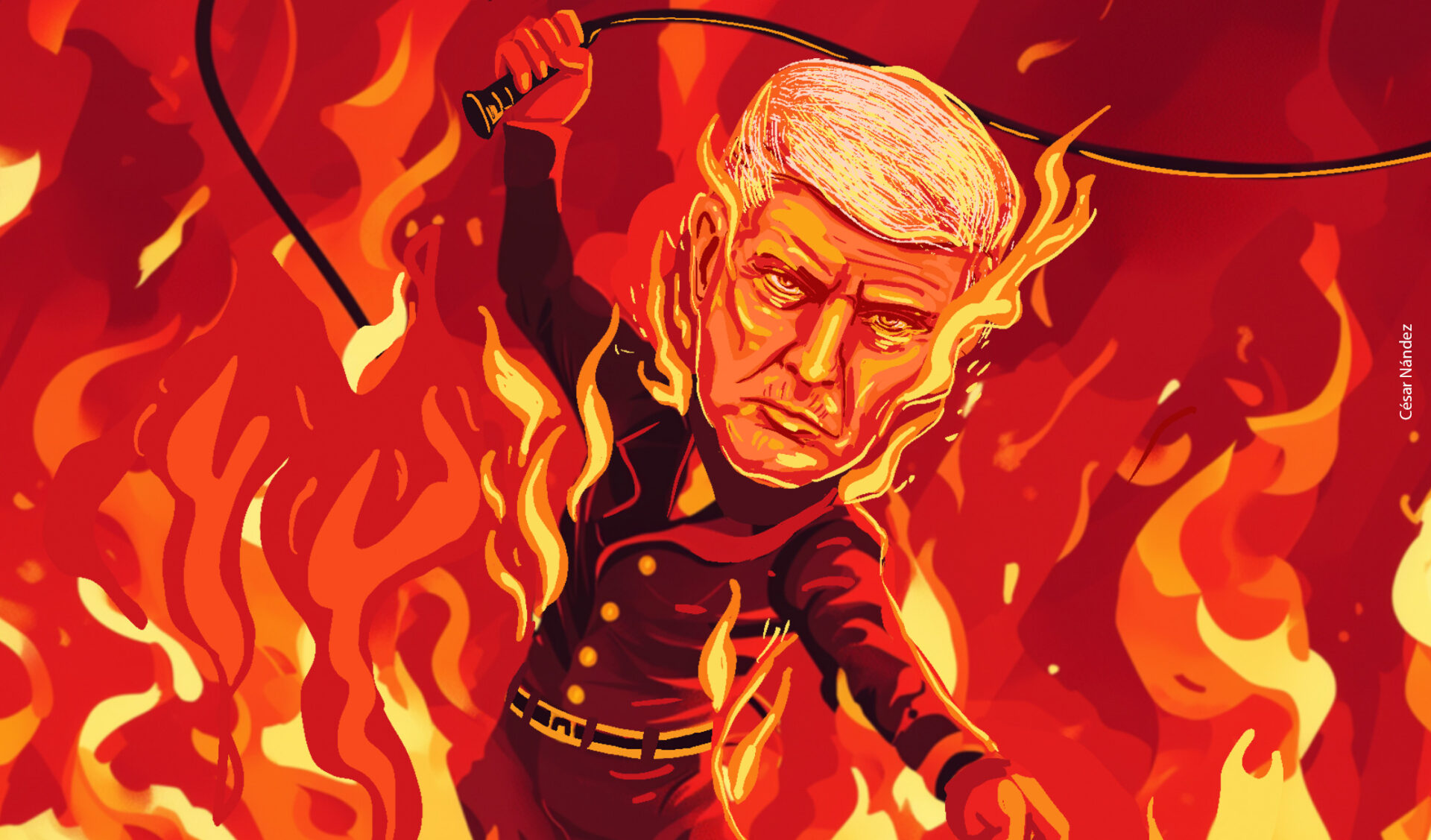“They need us more than we need them…,” declared Donald Trump from the Oval Office when referring to Latin America after assuming the presidency of the United States. This statement set the tone for an administration characterized by nationalism and a transactional approach to foreign policy. From the outset, Trump made it clear that the stability and security of the region would be treated as strategic issues aligned with Washington’s interests.
In this context, the governments of the hemisphere, including the United States’ closest allies, faced a dilemma: align with Washington’s agenda or face severe sanctions. An immediate example was the diplomatic crisis over deportation flights between Washington and Colombia, where, within hours, the Trump administration projected its power and emphasized that cooperation with the U.S.—in this case, Colombia accepting deportees—was not optional. The repercussions were swift. Panama abandoned plans to renew agreements with China regarding the interoceanic canal, the Venezuelan government unconditionally released detained U.S. citizens, and both Mexico and Canada strengthened their cooperation on migration and security matters.
The message to the rest of the continent is that Washington will not tolerate a lack of alignment. Countries that do not cooperate will face economic sanctions, including tariffs that could impact their trade balance, credit ratings, and access to financial markets. However, geopolitical realities suggest a greater interdependence than Trump has acknowledged. While the main security and stability challenges for the U.S., such as organized crime, drug trafficking, and mass migration, originate in Latin America, the region also holds the key to potential solutions. Given this reality, the White House would do well to adopt a less aggressive and more cooperative policy, tailored to the diverse actors, interests, and situations across the region.
Organized Crime: A Transnational Threat
Organized crime is one of the main security challenges in the hemisphere. Criminal networks not only control drug trafficking to the United States but also engage in human trafficking, arms smuggling, and illegal mining. In Mexico, cartels have evolved from mere drug traffickers into powerful actors that control territories, establish parallel economies with strong global connections, and challenge the state. In Central America, gangs like MS-13 and Barrio 18 have consolidated transnational networks, despite the “iron fist” policy implemented by Salvadoran President Nayib Bukele. While his approach has significantly reduced violence, doubts remain about its long-term sustainability.
In Colombia, far from achieving peace after the agreement with the FARC, the security crisis has worsened. The fragmentation of former combatants and the rise of armed groups like the ELN and Clan del Golfo have strengthened illicit economies, expanding their influence beyond Colombian borders. What was once a problem concentrated in a few countries—Mexico, Colombia, Brazil, and the Northern Triangle of Central America—has now spread to nations traditionally considered stable. In Chile, ports have become key hubs for drug smuggling, while violence linked to score-settling has driven up the homicide rate. Costa Rica, historically an “island of peace” in Central America, has seen an unprecedented increase in murders tied to local gang disputes. Even Uruguay, known for its stability, has experienced a rise in money laundering and drug-related violence.
The ability of these networks to adapt and infiltrate new markets demonstrates that no country is immune to their impact. This expansion of organized crime highlights the need for coordinated regional responses. Without a joint strategy, criminal organizations will continue to expand their influence, challenge state authority, and undermine regional security.
Iron Fist or Comprehensive Strategies?
Latin America has oscillated between repressive crackdowns and more comprehensive security strategies. The immediate success of iron-fist policies in some countries has sparked interest in replicating them, but their limitations are evident. El Salvador under Bukele has shown that a state of emergency can drastically reduce homicides and dismantle criminal structures in the short term. His high approval ratings seem to validate this approach, but reports of human rights violations and the centralization of power raise concerns about its long-term viability.
In contrast, countries like Mexico and Brazil, where criminal networks are more entrenched and state institutions are weakened by corruption, face additional challenges in implementing similar strategies. Without investment in economic development and institutional strengthening, punitive measures can backfire—leading to the diversification of criminal activities and increased violence. Repression without accompanying social and economic policies tends to cause organized crime to reorganize rather than be dismantled entirely.
Diverse Actors, Unequal Responses
Security policies in Latin America are highly heterogeneous, and each country’s relationship with the U.S. varies based on political alignments and national interests. Mexico has adopted a pragmatic approach to migration and security, prioritizing cooperation with Washington despite its leaders’ nationalist rhetoric. At the other end of the spectrum, Venezuela and Nicaragua have taken a confrontational stance, strengthening ties with China and Russia as geopolitical counterweights. Brazil, with its leadership in BRICS, balances its relationship with the U.S. while maintaining influence in alternative international forums. Chile, historically a key U.S. ally, has fluctuated between dialogue-based strategies and punitive measures in internal security matters, particularly in the Mapuche conflict.
This landscape underscores the need for the U.S. to adopt differentiated strategies based on each country’s specific context. The uniform application of policies in areas such as security, trade, or cooperation would be ineffective. Instead, a more flexible approach, tailored to local realities, would yield better results in the fight against organized crime and in ensuring regional stability.
A Surprise in Trump’s Second Term?
Trump’s return to the White House places the hemisphere at a crossroads. His administration could pursue punitive and unilateral policies, consistent with his initial rhetoric, which would heighten tensions with governments in the region. However, there is also a possibility that Trump could adopt a more pragmatic approach, recognizing that regional security depends on cooperation with Latin America and that the region is far from homogeneous. The fight against organized crime and the containment of illegal migration require joint efforts. A strategy based solely on pressure without incentives for collaboration would ultimately be counterproductive to U.S. interests.
Latin America’s relationship with the U.S. is undergoing a period of redefinition, where regional security and stability will be key factors in shaping a new hemispheric balance of power. In this context, the dilemma for Latin American governments is not merely whether to align with Washington’s pressures or seek alternative geopolitical allies. If the solutions to the very problems Trump has identified lie within the region, then there are also more opportunities for pragmatic cooperation than may initially seem apparent.
*Machine translation proofread by Janaína da Silva.












